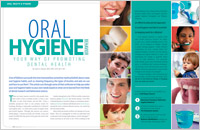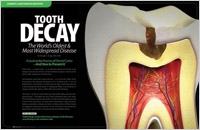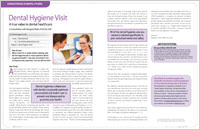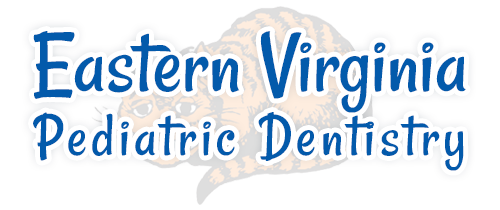Oral Health & Hygiene
Oral health is an essential component of general health. In fact, medical research has revealed links between common oral infections and serious general health conditions, including cardiovascular disease and diabetes. It is therefore of the utmost importance to maintain the health of the teeth, gums, and other oral tissues. This should start in early childhood and continue throughout life.
One of the most important things you can do to safeguard your oral health is to maintain a daily oral hygiene routine that effectively removes plaque from your teeth. It's the bacteria that thrive in the plaque biofilm that cause so many oral health problems, including tooth decay and gum disease. Nutrition and lifestyle choices also play an important role. You don't have any control over hereditary factors that may predispose you to gum disease — but you do have control over how much sugar you eat and when you eat it; how often you exercise; whether you smoke; and how often you visit the dentist for routine cleanings and oral exams.
Routine Care at Home
The best way to keep your teeth clean and free of disease, your gums pink and healthy, and your breath fresh, is to follow a program of daily oral hygiene:
- Brush and Floss. Brush at least twice a day with a fluoride toothpaste, and floss at least once daily. This will help remove plaque, a bacteria-laden biofilm, from the surfaces of your teeth. The bacteria in plaque can turn sugars from food into acids, which attack the tooth's enamel and cause tooth decay. Some bacteria can also cause gingivitis and other gum diseases.
- Limit Snacking. Sugary snacks are the perfect fuel for decay-causing bacteria. When eaten throughout the day, they keep the acid produced by bacteria constantly on the attack. So limit sugary treats (if you allow them at all) to mealtimes and try to snack on healthier foods such as fruits, vegetables and yogurt.
- Quit Tobacco. Whether smoked or smokeless, tobacco use greatly increases your risk of oral cancer, gum disease, and tooth decay (not to mention heart disease and lung cancer… but you already knew that). If you use tobacco, ask your doctor or dentist how to quit now.
- Examine Your Mouth Regularly. Once you've established a regular routine, you'll quickly recognize any changes in your mouth — like chipped teeth, red or swollen gums, or unusual sores. If you find something of concern, let your dentist know. Early treatment offers the best chance to remedy many problems.
- Wear a Mouthguard/Nightguard. If you or your children participate in sports, you should protect your teeth with a mouthguard. This is particularly important if you wear braces or have had restorative dental work in the past. And, if you have a habit of clenching or grinding your teeth, ask your dentist if you should wear a nightguard to protect your teeth.
Preventive Dental Visits
Regular preventive dental visits play a crucial role in maintaining your oral health. At your regular exam, you will be checked for any signs of oral cancer, tooth decay, gum disease, and other oral infections; plus, hard-to-reach deposits from your teeth will be cleaned. And while you're there, you can get answers to any questions you have on topics ranging from oral hygiene issues to the connection between oral health and systemic diseases. Having regular checkups could save you lots of time, aggravation, and cost in the long run. It could even save your teeth!
Related Articles

Oral Hygiene Behavior — Dental Health for Life The best tools for maintaining your oral health and minimizing dental problems are a quality toothbrush, toothpaste, a roll of dental floss, approved mouthwash and good diet. This article details a winning game plan for oral health... Read Article

Tooth Decay — A Preventable Disease Tooth decay is the number one reason children and adults lose teeth during their lifetime. Yet many people don't realize that it is a preventable infection. This article explores the causes of tooth decay, its prevention, and the relationship to bacteria, sugars, and acids... Read Article

Dental Hygiene Visit There's a lot more going on at your regular dental hygiene visit than a feel-good polishing! Dental hygienists collaborate with dentists to provide optimum personalized oral health care to prevent oral disease and to promote your health... Read Article


